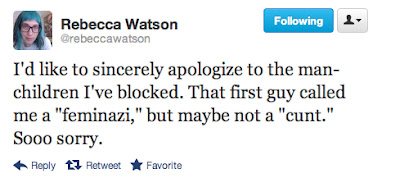As well as going into the cognitive development that's needed to lie (autistic people make very poor liars), how people give away their deceit, and how to spot lying, it also used the premise to discuss how the brain works - for example, touch your nose with your finger.
Go on.
It felt (or it should have done) as if your finger felt your nose, and your nose felt your finger, at the same time. However, it takes longer for the signal from your finger to reach your brain than it does for the signal from your nose. Your brain fudges in, to make it seem that these things are happening instantaneously, but they are not. The audio and visual output from your tv can be a tenth of a second out, or less, and our brain automatically makes us see them in synch. There are lots of other short cuts our brain takes that we cannot escape - we have them because they were good enough to let us survive.
It also goes into such things as the placebo effect, cognitive dissonance, and self deception (most people rate themselves as being above average over a range of factors).
By lying, I mean to intentionally deceive someone when they expect honest communication - I'm still free to bluff at poker.
It's true that deception is all around us, but that is no excuse. Ian Leslie also says that "Honesty is not effortless, but something at which we have to work". True, to an extent, but lying is harder - you need to keep in your head all that is not true, and make sure that the statements you disseminate do not contradict what other's know. Being honest only means you have to stick to your own memory.
As Sam Harris says:
"When asked “How are you?” most of us reflexively say that we are well, understanding the question to be merely a greet- ing, rather than an invitation to discuss our career disappointments, our marital troubles, or the condition of our bowels. Elisions of this kind can be forms of deception, but they are not quite lies. We may skirt the truth at such moments, but we do not deliberately manufacture falsehood."
Effort with honesty only seems to crop up around social norms - "Do I look fat in this dress?". But, it's still the better course of action.
Even if there are Nazis at the door, one needed lie to save Anne Frank - "I wouldn't tell you even if I did know" is not a lie, and should suffice for all instances.
So yes, do go out and read
Born Liars, and, if you haven't. Sam Harris'
Lying. (Which I can email you for free, though if I do, Sam Harris asks in his book that if you do receive it for free, you buy a copy).
One thing I did learn about was the notion of mental reservation:
"The most influential advocate of what became known as 'the doctrine of mental reservation' was the Spanish theologian Dr Navarrus, who wrote that there are some truths 'expressed partly in speech and partly in the mind'. According to Navarrus, the Christian's overriding moral duty is to tell the truth to God; 'reserving' some of that truth from the ears of human hearers is moral if it serves the greater good. For example, the user of mental reservation could reply 'I know not' aloud to a human interlocutor but silently add 'to tell you', and still be telling the truth. The doctrine's adherents claimed that Christ himself practised it; he told his disciples that he did not know the Day of Judgement, even though his omniscience meant that he must have known".
What surprised me is that this piece of 16th century theology is alive today. This came to light in the 2009 report on the widespread allegations of clerical child abuse in Ireland. Here are two examples from the book:
"Marie Collins, who was abused by a Dublin priest, testified that when the archdiocese said in a 1997 press statement that it had co-operated with the police over her complaint of abuse she was upset because she had good reason to know this wasn't true. When a priest made inquiries on her behalf he was told by the archdiocese 'we never said we co-operated
fully".
and
"Cardinal Connell felt compelled to emphasise that he did not lie to the media about the use of diocesan funds for the compensation of clerical child sexual abuse victims. According to the report, this is how the Cardinal explained away his misleading statements to the press:
...that diocesan funds ARE [reporter's emphasis] not used for such a purpose; that he had not said that diocesan funds WERE not used for such a purpose. By using the present tense he had not excluded the possibility that diocesan funds had been used for such purpose in the past... Cardinal Connell considered that there was an enormous difference between the two."
I don't know if mental reservation is one of the examples of sophisticated theology that Richard Dawkins et al have been accused of not addressing...


